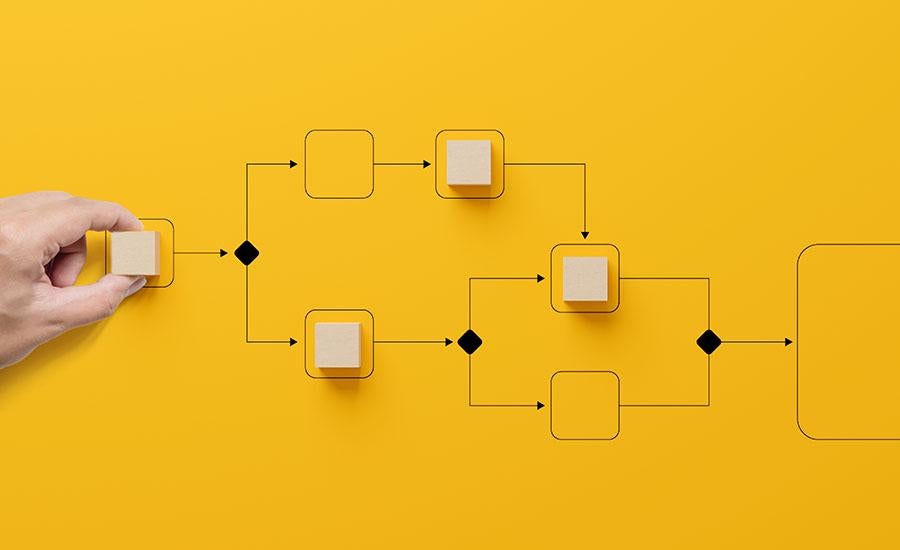Grades:
3rd Grade
In this lesson, students will research a variety of habitats. They will then use their research to document what they learned using technology. This information will be used in future lessons to build
Grades:
6th Grade, 7th Grade, 8th Grade
This is an 8-lesson unit that is designed to be used together to learn about the health and diversity of your local watershed by placing leaf packs into a water source (natural or man-made ponds
Grades:
6th Grade
This is the second part of the egg drop challenge. Students will improve on their original design and make a new design to test and analyze.
Grades:
4th Grade, 5th Grade, 6th Grade, 7th Grade, 8th Grade
In this lesson students will be introduced to the Edison Robot and coding. They will work collaboratively to code a program in EdScratch for Edison to complete. Students will work together to test and
Grades:
6th Grade, 7th Grade, 8th Grade
This is an 8-lesson unit that is designed to be used together to learn about the health and diversity of your local watershed by placing leaf packs into a water source (natural or man-made ponds
Grades:
5th Grade
In this creative lesson, students will create a simple machine to retrieve objects through a makeshift storm drain. There is a potential literacy integration and a focus on the engineering design
Grades:
5th Grade, 6th Grade
This is an introductory lesson designed for a robotics after-school session involving materials and equipment from VEX robotics and coding. Students explore robotics, discuss the tasks robots can
Grades:
3rd Grade, 4th Grade
This hands-on lesson is based on the book, "If I Built a House". Students use recyclables to create a 'dream' house which is based on their likes and interests. Using the Engineering Design Process as
Grades:
6th Grade, 7th Grade, 8th Grade
This hands-on science lesson will help students get a more accurate view of the solar system by making a scale model with play dough, balloons, rulers, and tape!
Grades:
3rd Grade, 4th Grade, 5th Grade
An alternative way of farming to encourage people in a community that does not have agricultural land. Vertical farming is often a suggested solution for urban gardening and farming. It's also a great
Grades:
3rd Grade
This lesson is the initial planning, sorting, and planting lesson to get Our Plot of Sunshine Curriculum started within a 3rd grade classroom. Can be modified for other grades, but math within this
Grades:
4th Grade
Students will be able to design a method of protection for the Earth’s land that would withstand the impact of rainfall on soil and prevent erosion. Students will discover that the soil with
Grades:
4th Grade, 5th Grade, 6th Grade, 7th Grade, 8th Grade
In this engaging lesson, students use LEGOs to create a working seismograph. Included are all the materials you will need, video links, a pre and post assessment and rubric. Students will enjoy this
Grades:
6th Grade, 7th Grade, 8th Grade
This is an 8-lesson unit that is designed to be used together to learn about the health and diversity of your local watershed by placing leaf packs into a water source (natural or man-made ponds
Grades:
5th Grade
In this engaging and hands-on lesson, students will learn how crime scene investigators use science and engineering techniques and technology to solve crimes. Students will match substances based upon
Grades:
3rd Grade
In this lesson, students will create a unique animal and then describe & draw it in a specific habitat. The students will determine what adaptations the animal needs to survive in the habitat and
Grades:
3rd Grade, 4th Grade, 5th Grade
This lesson is for 3rd-5th grade students to explore the concept of aquaponics and build a working aquaponics system.
Grades:
6th Grade, 7th Grade, 8th Grade
This is an 8-lesson unit that is designed to be used together to learn about the health and diversity of your local watershed by placing leaf packs into a water source (natural or man-made ponds
Grades:
Kindergarten, 1st Grade
Students build the tallest beanstalk they can with the provided materials. They then measure it and compare their beanstalk heights. This pairs perfectly with a read aloud of Jack and the Beanstalk!
Grades:
6th Grade
This is the first lesson is a series of 2 for the egg drop challenge. Students will work in groups to design and test an egg drop capsule. Students will keep a budget and fill out a data and
Grades:
11th Grade, 12th Grade
This will be a 1 class period laboratory. It should take about 45-60 minutes. Students will be making a wet-mount slide of pollen that they collected or that was provided. They can look at prepared
Grades:
5th Grade
In this STEM lesson, 5th grade students will apply what they have learned about the affect gravity and friction have on an object’s mobility by engineering simple machines to change the ending of the
Grades:
6th Grade, 7th Grade, 8th Grade
This is an 8-lesson unit that is designed to be used together to learn about the health and diversity of your local watershed by placing leaf packs into a water source (natural or man-made ponds
Grades:
3rd Grade
In this engaging lesson, students will create their own parade float using recyclable materials and code a parade route using Dash robots. Students will do this after hearing the story "Balloons over
Featured Lesson Plans
Check out these notable lesson plans.

Featured
Math Magic through Coding!
Grades:
2nd Grade
In this 2nd grade STEM lesson, students will learn how symbols (directional arrows) can be used to program an object's movements. They will develop an algorithm using a sequential graphic organizer to

Featured
Intro to MS Make Code (Eat the Food)
Grades:
4th Grade, 5th Grade, 6th Grade, 7th Grade, 8th Grade
MS MakeCode is the perfect stepping stone into the world of Scratch. Students will be able to create a working video game in one class period. As we all know classic video games were not built over

Featured
Kill the Dyes
Grades:
3rd Grade
In this lesson students will discover harmful effects and chemical makeups of artificial ingredients, specifically food coloring and red dyes. Students will experiment with and demonstrate capillary


